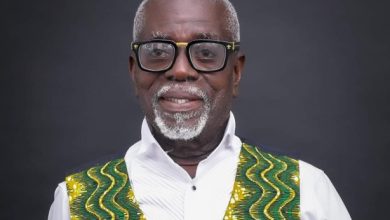At a time of global turmoil and division, the international community is preparing to seize the opportunity to reaffirm its political support and collective commitment to United Nations Peacekeeping at an upcoming Ministerial Meeting.
Held for the first time in Africa, this high-level event will bring together Foreign and Defence Ministers from around the world in Accra on 5-6 December to make concrete pledges that will help strengthen the effectiveness of peacekeeping.
One quarter of humanity live in conflict-affected areas and around 108 million people have been forcibly displaced—more than double a decade ago. In these times, we urgently need the full, unified support of the international community to better serve the world’s most vulnerable populations.
Securing broad political support and mobilizing all actors, including local populations, is critical to achieve our primary objective of securing durable peace through political solutions. Enabling more nimble and effective peacekeeping, as it adapts to today’s challenges, also relies on creating and deepening partnerships. This will be a key focus of ministers at the 2023 UN Peacekeeping Ministerial.
At the event, Member States must demonstrate their commitment to UN Peacekeeping through new pledges that will help meet current and future needs as well as new or expanded partnerships on capacity-building, training, and equipping.
To achieve the primary goal of UN Peacekeeping, we need Member States to provide stronger, unified political support to our efforts to help parties to conflicts to secure political solutions. This is in line with Secretary-General António Guterres’s New Agenda for Peace, which provides a clear-eyed assessment of the challenges facing the collective security system, and offers action-oriented recommendations for Member States ahead of next year’s Summit of the Future. These complex peace and security challenges require the UN to be able to mount tailored operational responses, and support other actors, like the African Union, in doing so.
This year’s Ministerial seeks to strengthen the tool of UN Peacekeeping Operations. More specifically, it will focus on bolstering the protection of civilians, a priority task of most UN peacekeeping missions. We also need to continue to improve the safety and security of peacekeepers, who are increasingly targeted by threats and violence. The provision of adequate mental health care is equally necessary. More also needs to be done in partnership with Member States to address and end misconduct, such as sexual abuse and exploitation, and to better support its victims.
Durable peace is possible only if all members of the community are part of the solution, including ensuring more women are involved in political processes as well as deployed to our missions. Ghana is an exemplar as it deploys a significant number of women to peacekeeping operations at every level and in all roles. Among those is Ghanaian Captain Cecilia Erzuah, who won the UN Military Gender Advocate of the Year Award for helping improve protection efforts with the UN Interim Security Force in Abyei.
Captain Erzuah is one of more than two million military, police and civilian peacekeepers who have saved countless lives, prevented conflict, and supported political processes over 75 years. We are doing our utmost and always striving to do better, including to further the legacy of 4,200 peacekeepers who have lost their lives serving peace.
Over the decades, we have learned that for peace to be sustainable it must be driven through locally led solutions. Evidence of this is found in countries like Namibia, Cambodia, Sierra Leone, Timor Leste and Liberia, where peacekeepers worked alongside political actors, civil society, women and youth to navigate the difficult path from war to peace.
Despite the demonstrable impact of peacekeeping, it can never meet all needs or expectations. Long-standing conflicts, driven by complex geopolitical and transnational factors, reveal its limitations. This is particularly the case when the Security Council gives missions overly ambitious mandates without adequate resources or political support.
The horrific impact of current conflicts on civilians is a stark reminder of the urgency of political solutions. While many peacekeeping missions have operated for decades, they are far from relics of the past. UNIFIL, for example, supports efforts to de-escalate tensions along the Blue Line between Israel and Lebanon, including by liaising with both sides. These operations play a vital role in protecting civilians and maintaining cease-fires while the search for a final political resolution continues. If anything, their longevity is a sign of the complex equation of peace. An equation that requires the consent of all parties involved but also a collective, unwavering commitment by Member States to multilateralism. This remains necessary for UN Peacekeeping to continue to be an essential tool for peace.
We look forward to this commitment being translated into action through concrete pledges by Member States in Ghana. The communities we serve deserve nothing less.
